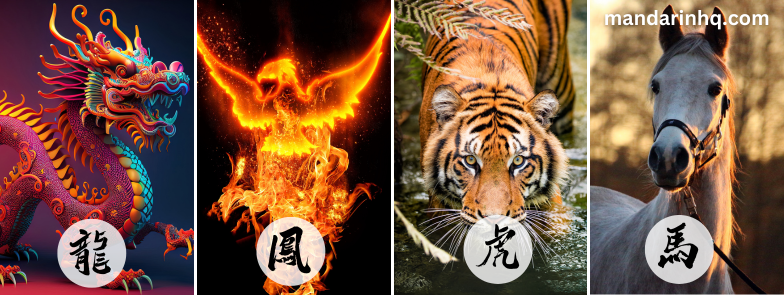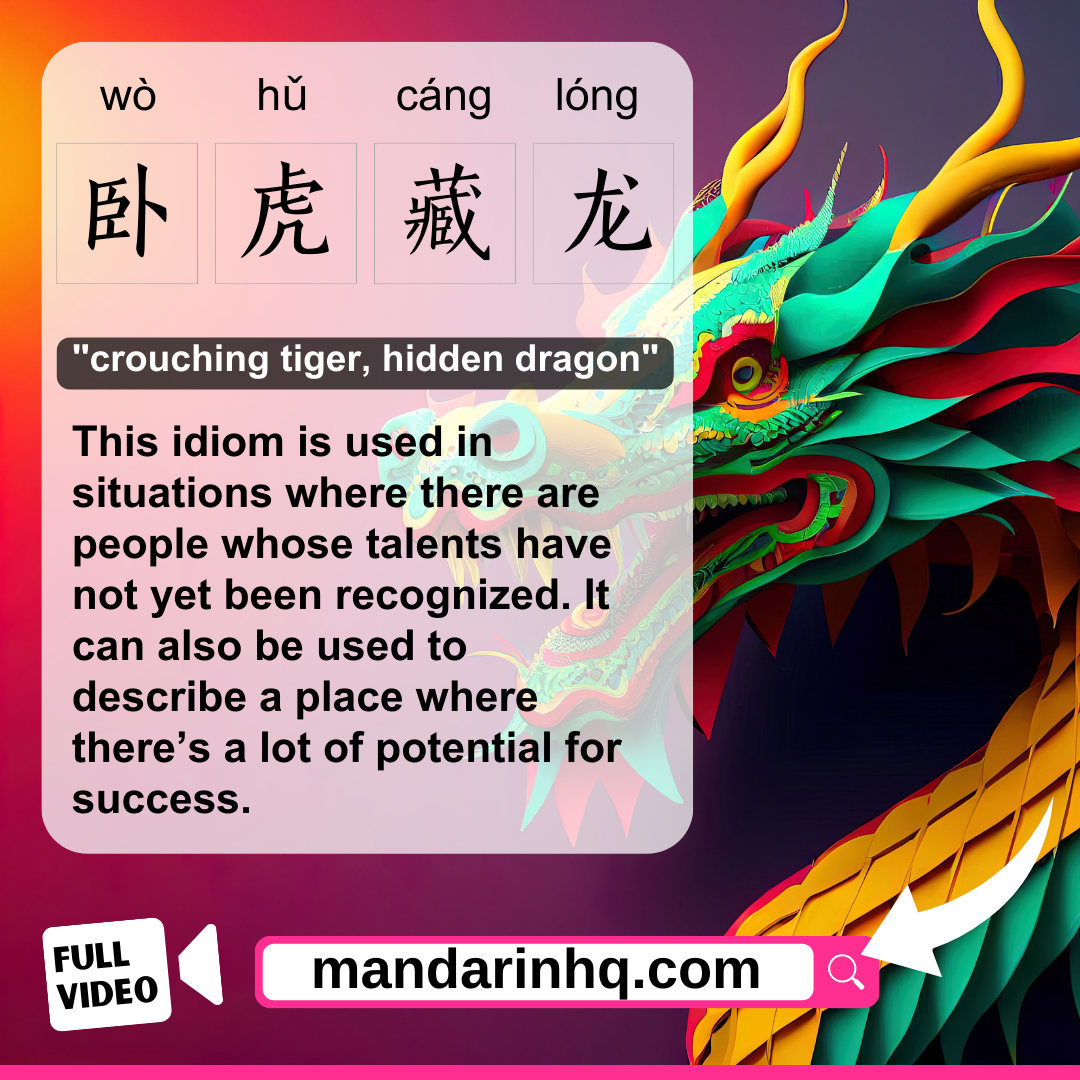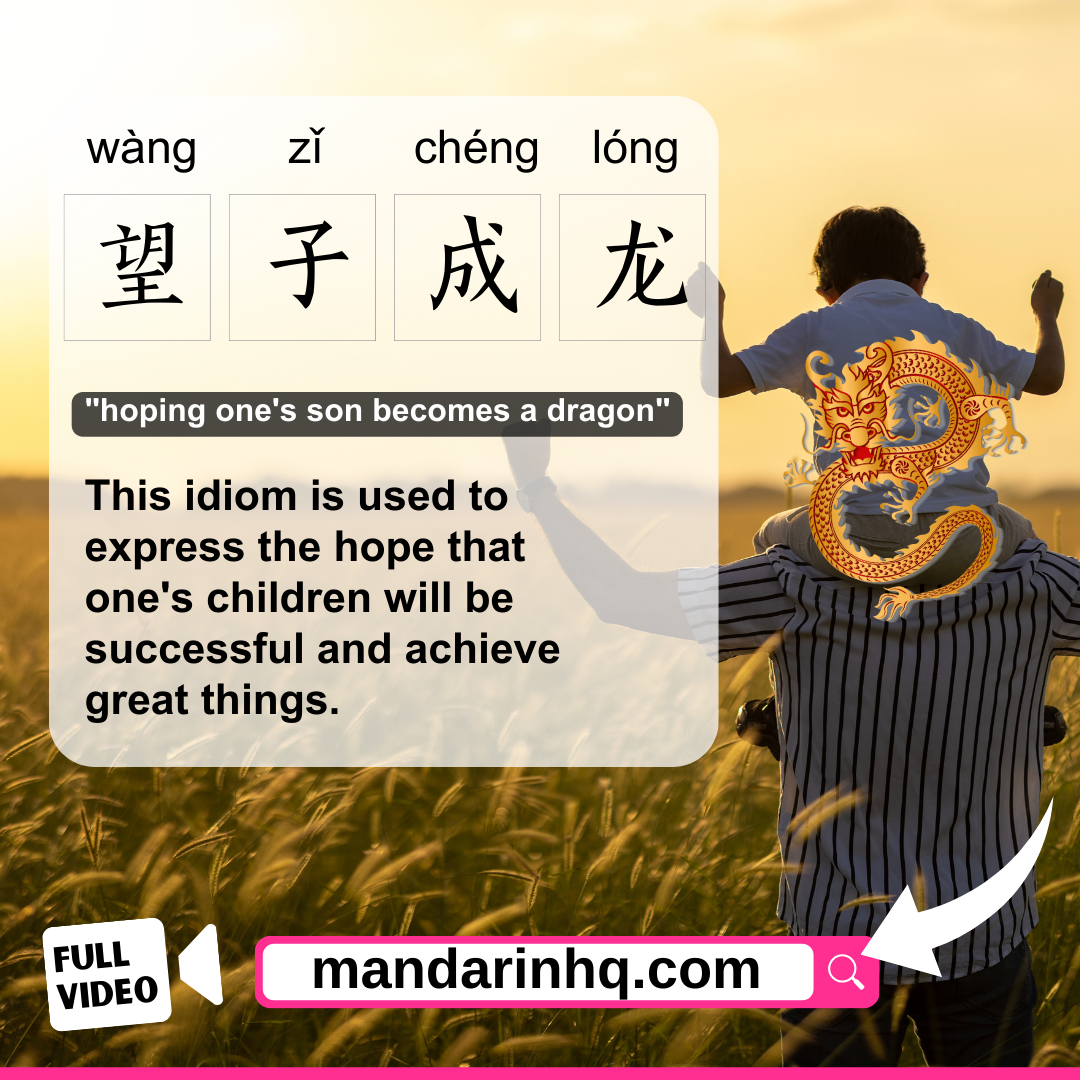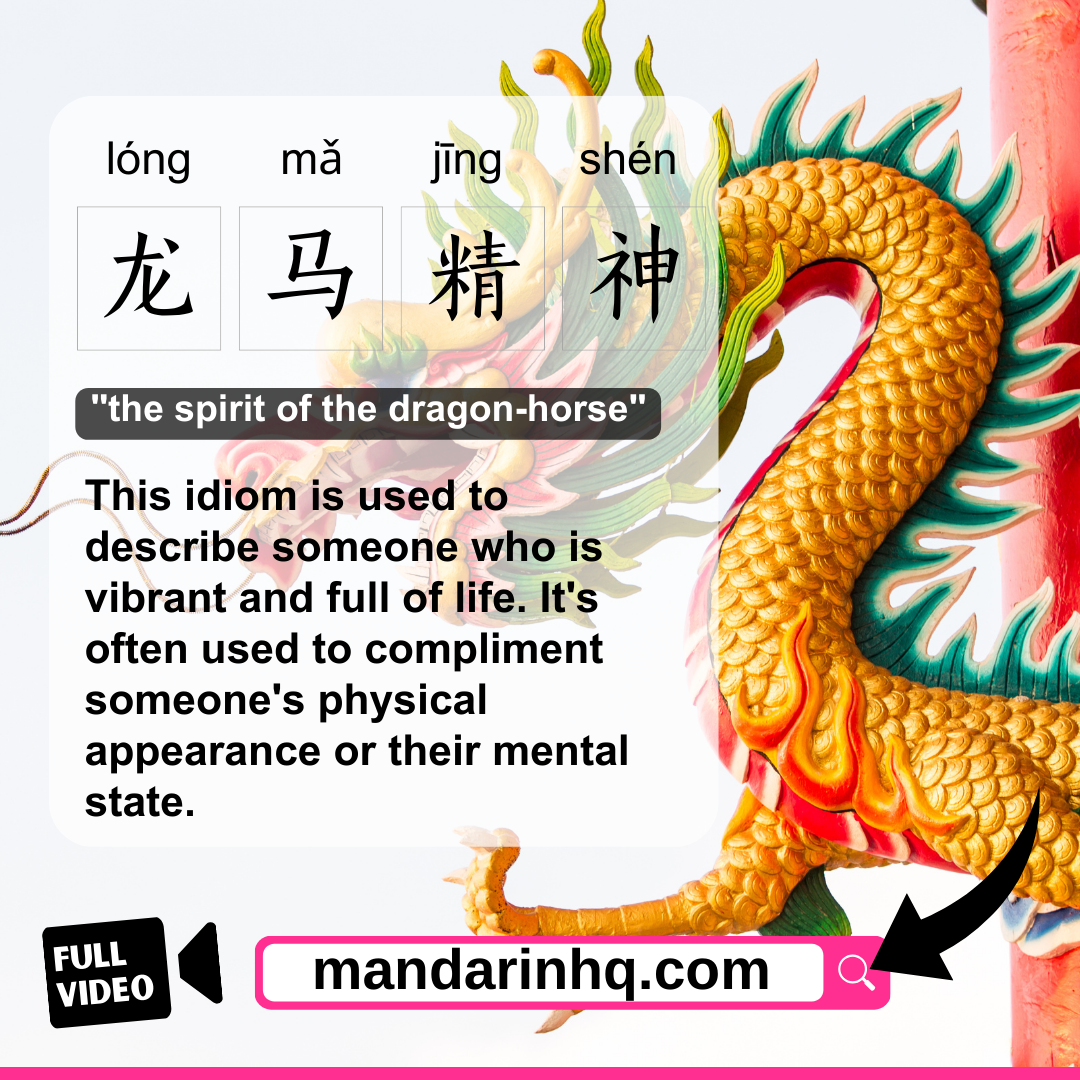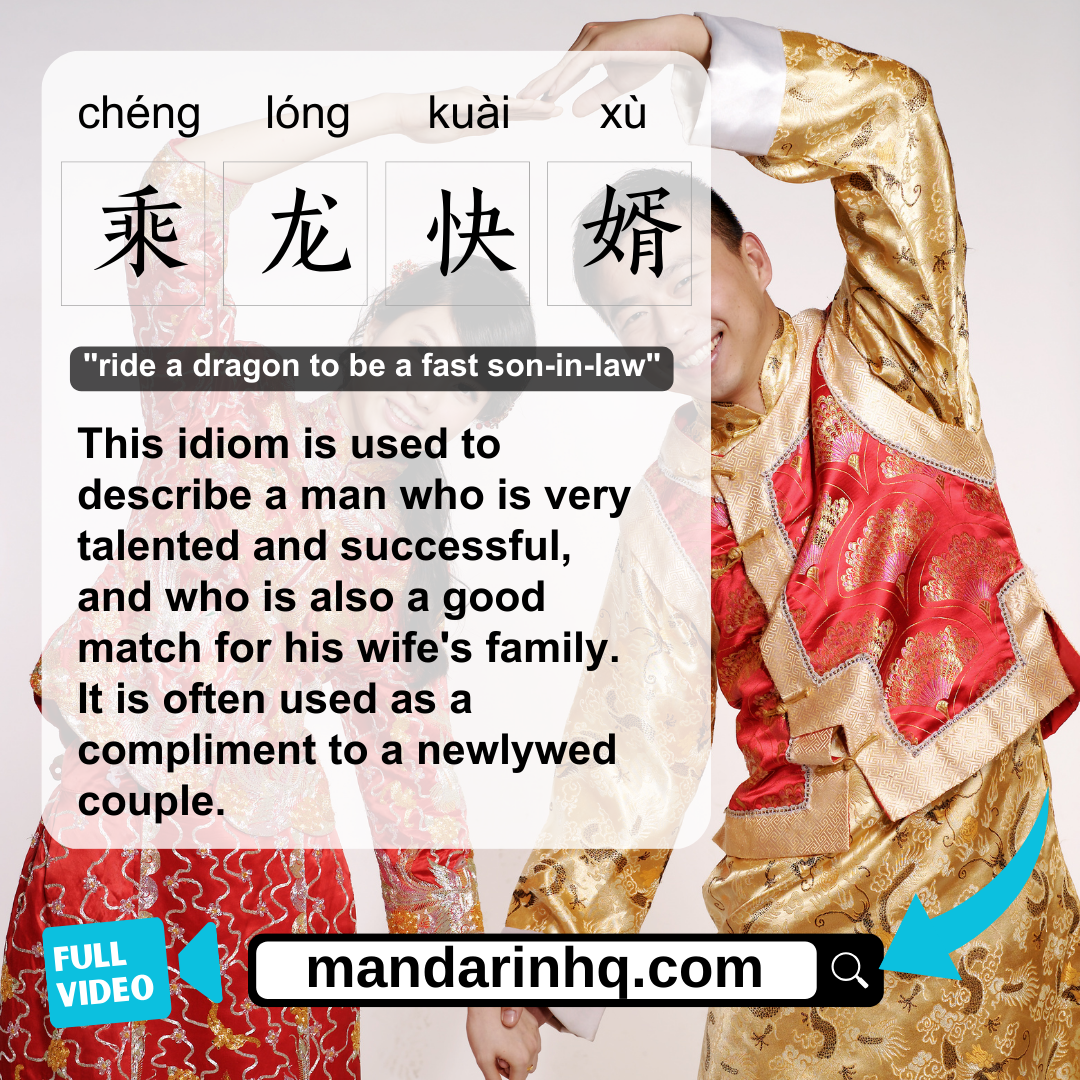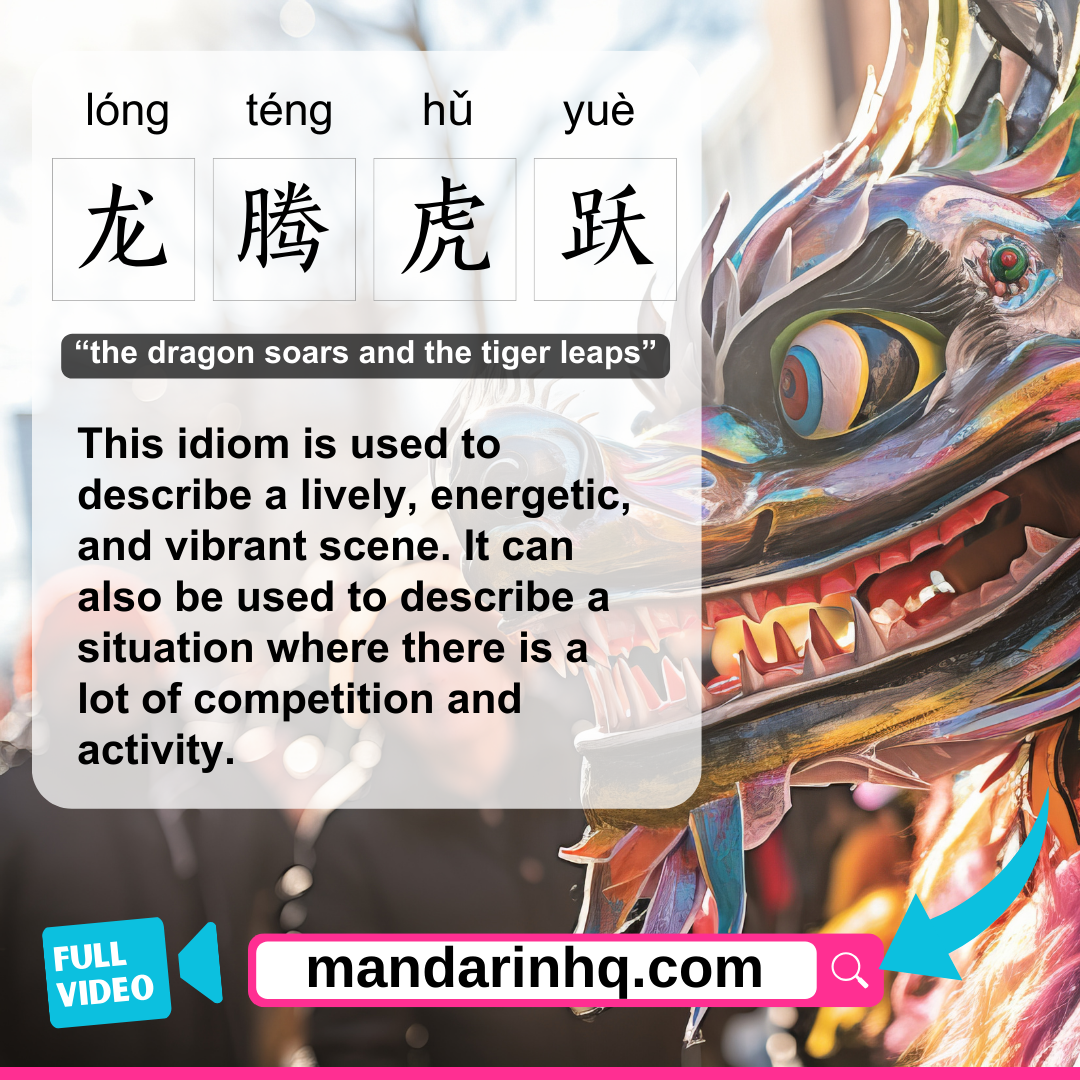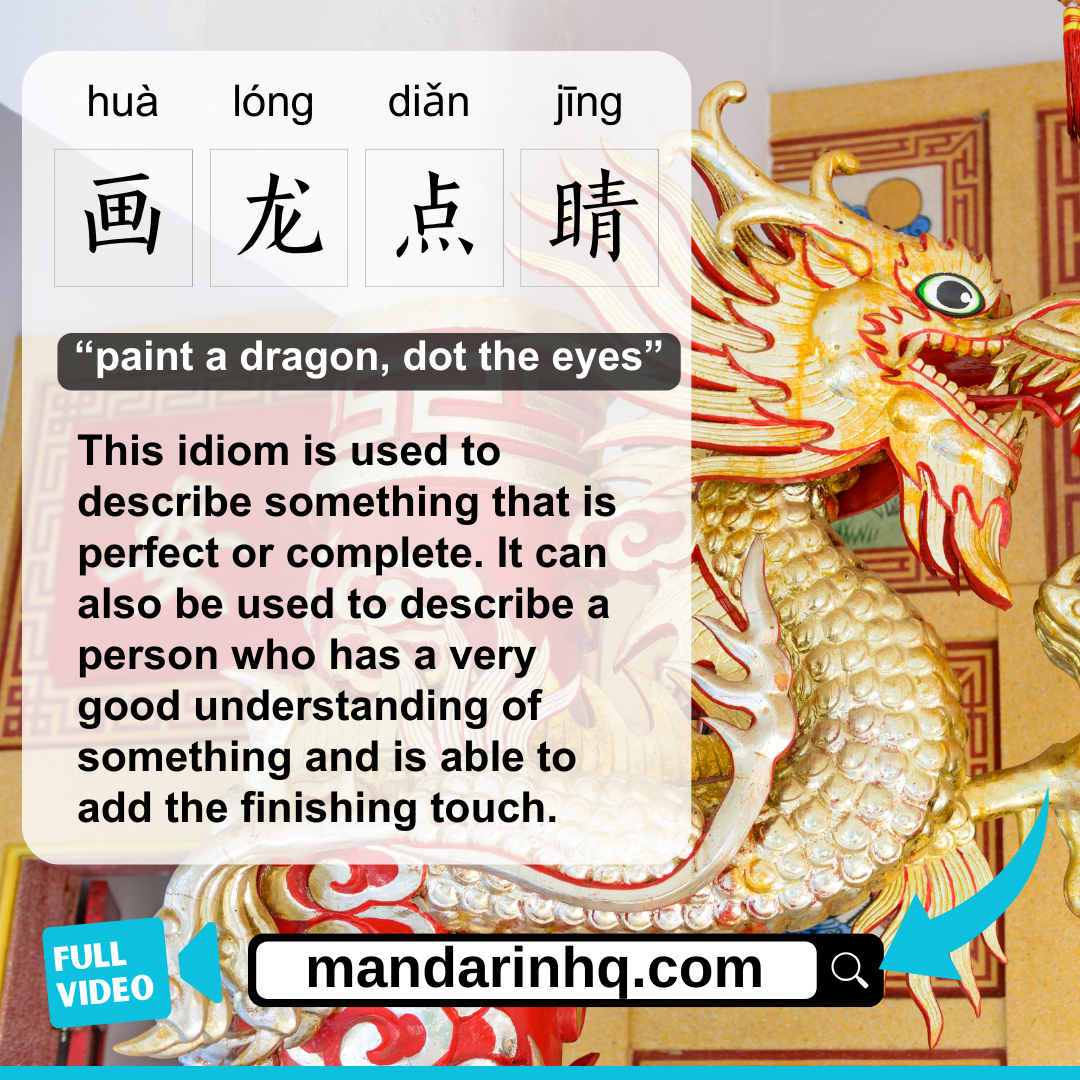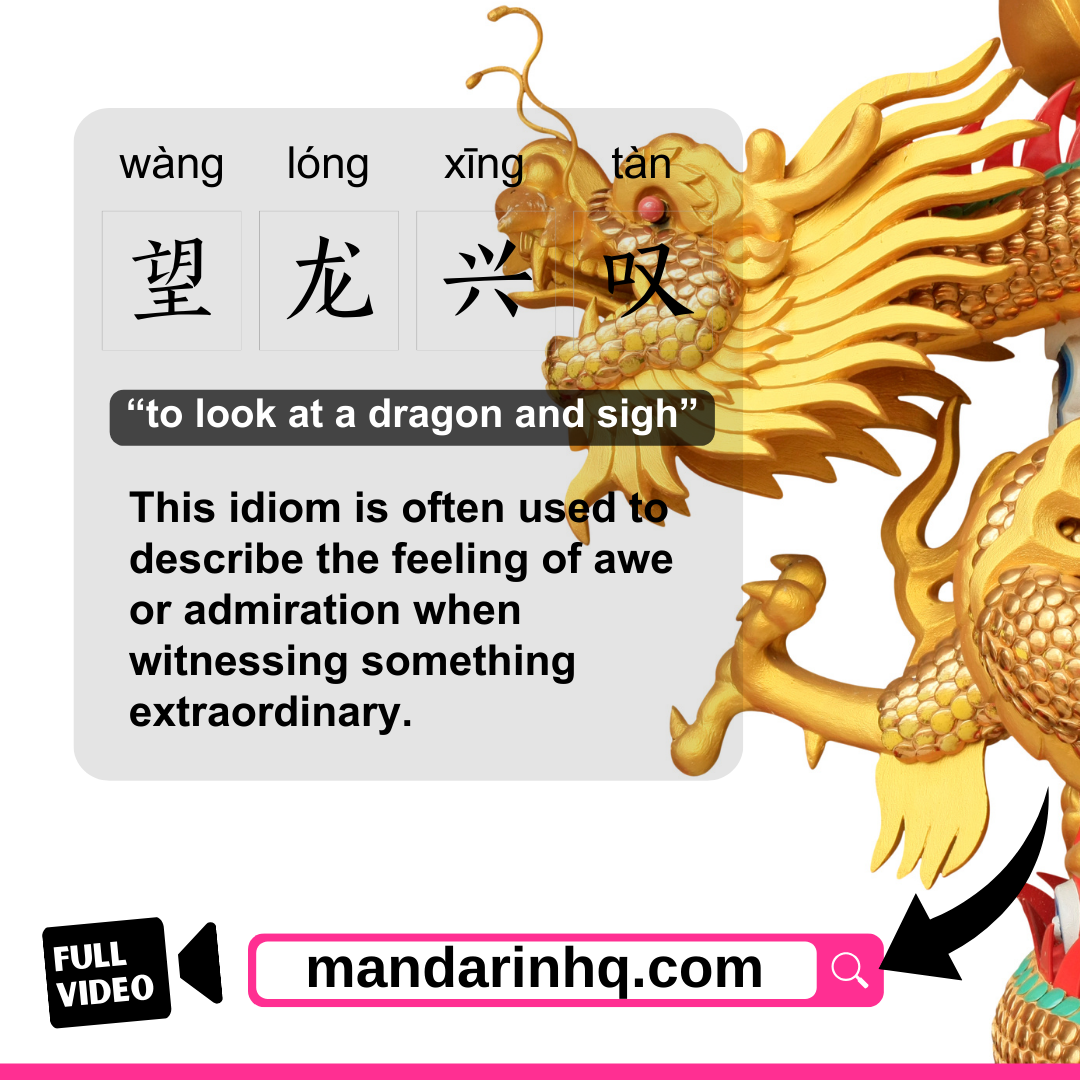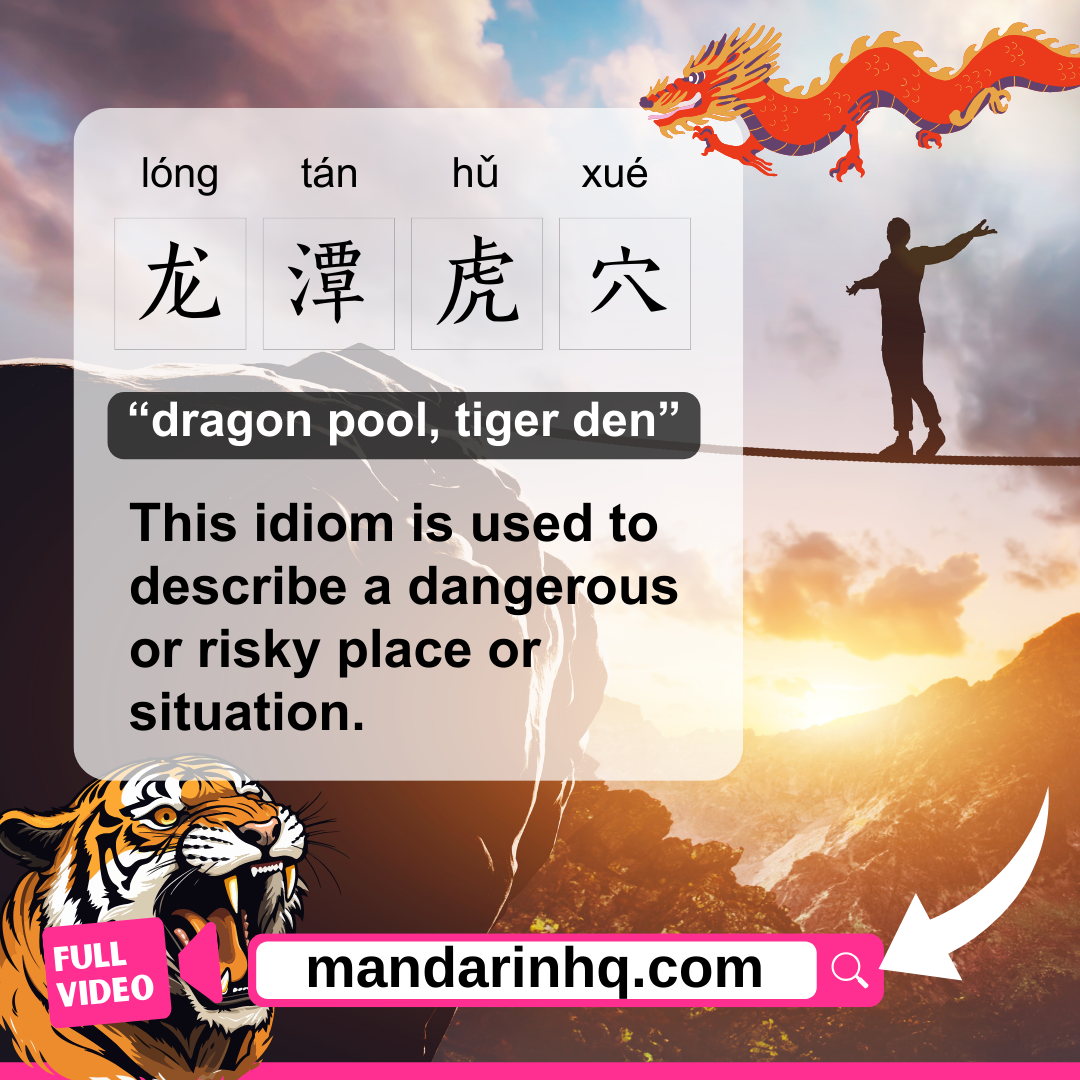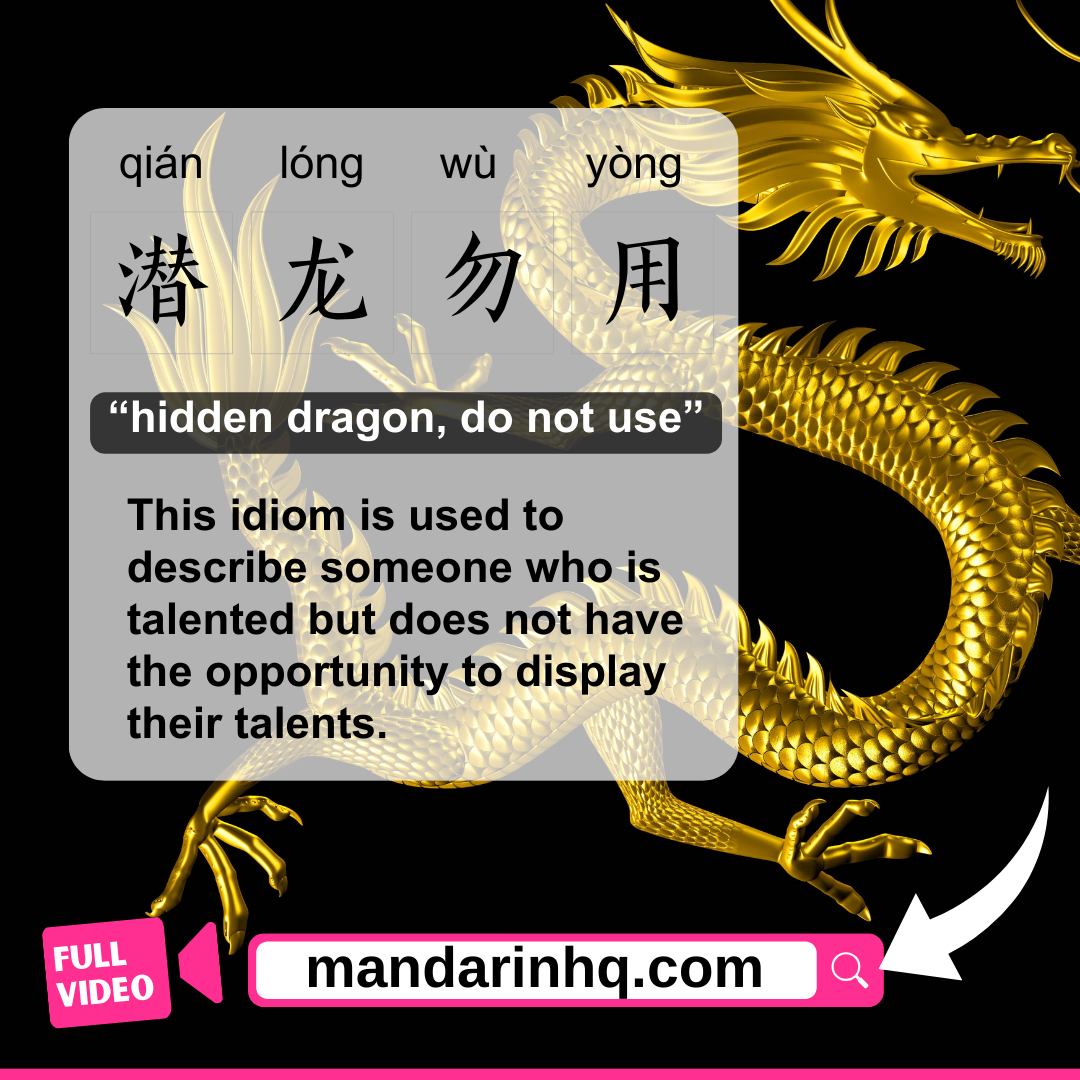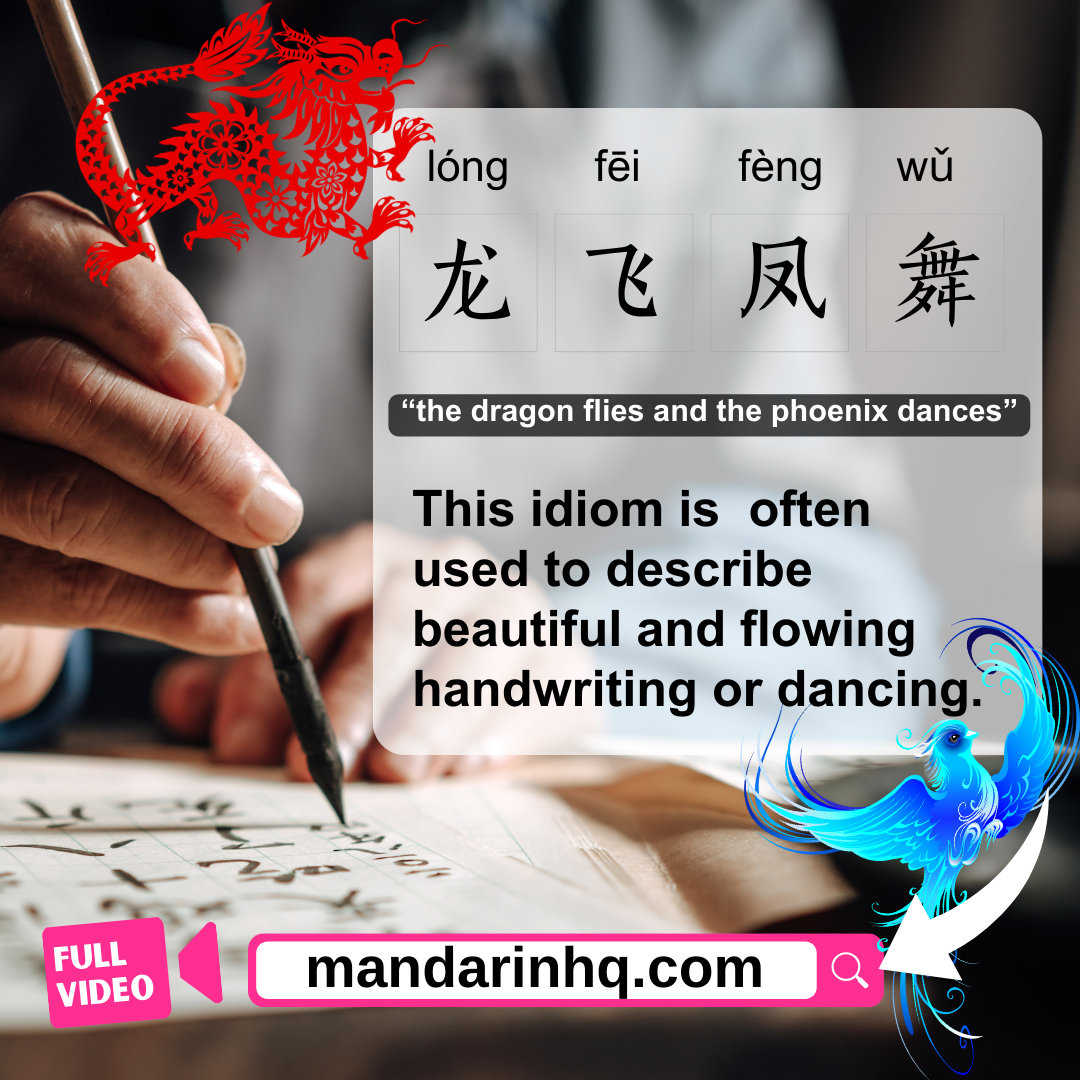In this blog post, we delve into the rich tapestry of Chinese language, where dragons and other mythical creatures are powerful symbols woven into everyday expressions.
These idioms, use the unique traits and tales of animals to impart life lessons and cultural values. So, let's uncover the meaning and mystery of these ancient phrases together!
Top 10 Dragon Idioms in Chinese: Meaning, Usage, & Examples [52-61]
There’s a famous movie called "卧虎藏龙", or "crouching tiger, hidden dragon".
"卧虎藏龙": "卧'"means crouching, "虎" means tiger, "藏" means hidden, "龙'" means dragon.
This idiom is used in situations where there are people whose talents have not yet been recognized. It can also be used to describe a place where there’s a lot of potential for success.
Example:
这家公司卧虎藏龙。
Zhè jiā gōngsī wò hǔ cáng lóng.
(There are many hidden talents in this company.)
"望子成龙", which means "hoping one's son becomes a dragon".
"望子成龙": "望" means hope, "子" means son, "成" means become, "龙" means dragon.
This idiom is used to express the hope that one's children will be successful and achieve great things.
Example:
望子成龙是每个父母的愿望。
(Wàng zǐ chéng lóng shì měi ge fùmǔ de yuànwàng.)
It is every parent's wish that their son will become successful.
"龙马精神", which translates to "the spirit of the dragon-horse".
"龙马精神": "龙" means dragon, "马" means horse, "精神" means spirit.
This idiom is used to describe someone who is vibrant and full of life. It's often used to compliment someone's physical appearance or their mental state.
So, if you see someone who looks healthy and happy, you can say:
你今天看起来龙马精神的!
nǐ jīntiān kànqǐlái lóng mǎ jīng shén de!
(You look vibrant today!)
"乘龙快婿", which translates to "ride a dragon to be a fast son-in-law".
"乘龙快婿": "乘" means ride, "龙" means dragon, "快" means fast, "婿" means son-in-law.
This idiom is used to describe a man who is very talented and successful, and who is also a good match for his wife's family. It is often used as a compliment to a newlywed couple.
Example:
恭喜你找到乘龙快婿!
(Gōngxǐ nǐ zhǎo dào chéng lóng kuài xù!)
Congratulations on finding an outstanding son-in-law!
"龙腾虎跃", or "the dragon soars and the tiger leaps".
"龙腾虎跃": "龙" means dragon, "腾" means soar, "虎" means tiger, "跃'" means leap.
This idiom is used to describe a lively, energetic, and vibrant scene. It can also be used to describe a situation where there is a lot of competition and activity.
Example:
春节期间,街上龙腾虎跃。
(Chūnjié qíjiān, jiē shàng lóng téng hǔ yuè.)
During the Spring Festival, the streets are bustling with dragons and tigers.
"画龙点睛", which means "paint a dragon, dot the eyes".
"画龙点睛": "画'" means paint, "龙" means dragon, "点" means dot, "睛" means eyes.
This idiom is used to describe something that is perfect or complete. It can also be used to describe a person who has a very good understanding of something and is able to add the finishing touch.
Example:
他的演讲画龙点睛,令人印象深刻。
(Tā de yǎnjiǎng huà lóng diǎn jīng, lìng rén yìnxiàng shēnkè.)
His speech was the finishing touch, leaving a deep impression on people.
"望龙兴叹", or "to look at a dragon and sigh".
"望龙兴叹": "望" means look, "龙" means dragon, "兴" means rise, "叹" means sigh.
This idiom is often used to describe the feeling of awe or admiration when witnessing something extraordinary.
Example:
面对他的成功,我只能望龙兴叹。
(Miàn duì tā de chénggōng, wǒ zhǐnéng wàng lóng xīng tàn.)
In the face of his success, I can only sigh with awe.
"龙潭虎穴", which translates to "dragon pool, tiger den".
"龙潭虎穴": "龙" means dragon, "潭" means pool, "虎" means tiger, "穴" means den.
This idiom is used to describe a dangerous or risky place or situation.
For example, you might say:
"他敢去那个龙潭虎穴,真是太勇敢了。"
Tā gǎn qù nàgè lóng tán hǔ xué, zhēnshi tài yǒnggǎnle.
(He dared to go to that dangerous place, he's really brave.)
"潜龙勿用", or "hidden dragon, do not use".
"潜龙勿用": "潜" means hidden, "龙" means dragon, "勿" means do not, "用'" means use.
This idiom is used to describe someone who is talented but does not have the opportunity to display their talents.
For example, you might say
"他是一个潜龙勿用的人,应该给他一个机会。"
Tā shì yīgè qián lóng wù yòng de rén, yīnggāi gěi tā yīgè jīhuì.
(He is a talented person who has not had the opportunity to display his talents, he should be given a chance.)
#10
"龙飞凤舞", which means "the dragon flies and the phoenix dances".
"龙飞凤舞": "龙" means dragon, "飞" means fly, "凤" means phoenix, "舞" means dance.
This idiom is often used to describe beautiful and flowing handwriting or dancing.
Example:
她的书法龙飞凤舞,很有气势。
Tā de shūfǎ lóng fēi fèng wǔ, hěn yǒu qìshì.
(Her calligraphy is beautiful and flowing, very impressive.)
You might also find these posts interesting:

